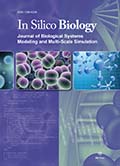Authors: Brusic, Vladimir | van Endert, Peter | Zeleznikow, John | Daniel, Soizic | Hammer, Jürgen | Petrovsky, Nikolai
Article Type:
Research Article
Abstract:
We used an artificial neural network (ANN) computer model to study peptide binding to the human transporter associated with antigen processing (TAP). After validation, an ANN model of TAP-peptide binding was used to mine a database of HLA-binding peptides to elucidate patterns of TAP binding. The affinity of HLA-binding peptides for TAP was found to differ according to the HLA supertype concerned: HLA-B27, -A3 or -A24 binding peptides had high, whereas HLA-A2, -B7 or -B8 binding
…peptides had low affinity for TAP. These results support the idea that TAP and particular HLA molecules may have co-evolved for efficient peptide processing and presentation. The strong similarity between the sets of peptides bound by TAP or HLA-B27 suggests functional co-evolution whereas the lack of a relationship between the sets of peptides bound by TAP or HLA-A2 is against these particular molecules having co-evolved. In support of these conclusions, the affinities of HLA-A2 and HLA-B7 binding peptides for TAP show similar distributions to that of randomly generated peptides. On the basis of these results we propose that HLA alleles constitute two separate classes: those that are TAP-efficient for peptide loading (HLA-B27, -A3 and -A24) and those that are TAP-inefficient (HLA-A2, -B7 and -B8). Computer modelling can be used to complement laboratory experiments and thereby speed up knowledge discovery in biology. In particular, we provide evidence that large-scale experiments can be avoided by combining initial experimental data with limited laboratory experiments sufficient to develop and validate appropriate computer models. These models can then be used to perform large-scale simulated experiments the results of which can then be validated by further small-scale laboratory experiments
Show more
Keywords: binding, data mining, MHCPEP, HLA, KDD, knowledge discovery from databases, major histocompatibility complex, MHC, peptide, prediction, simulated experiments, transport, translocation,
Citation: In Silico Biology,
vol. 1, no. 2, pp. 109-121, 1999
Price: EUR 27.50





